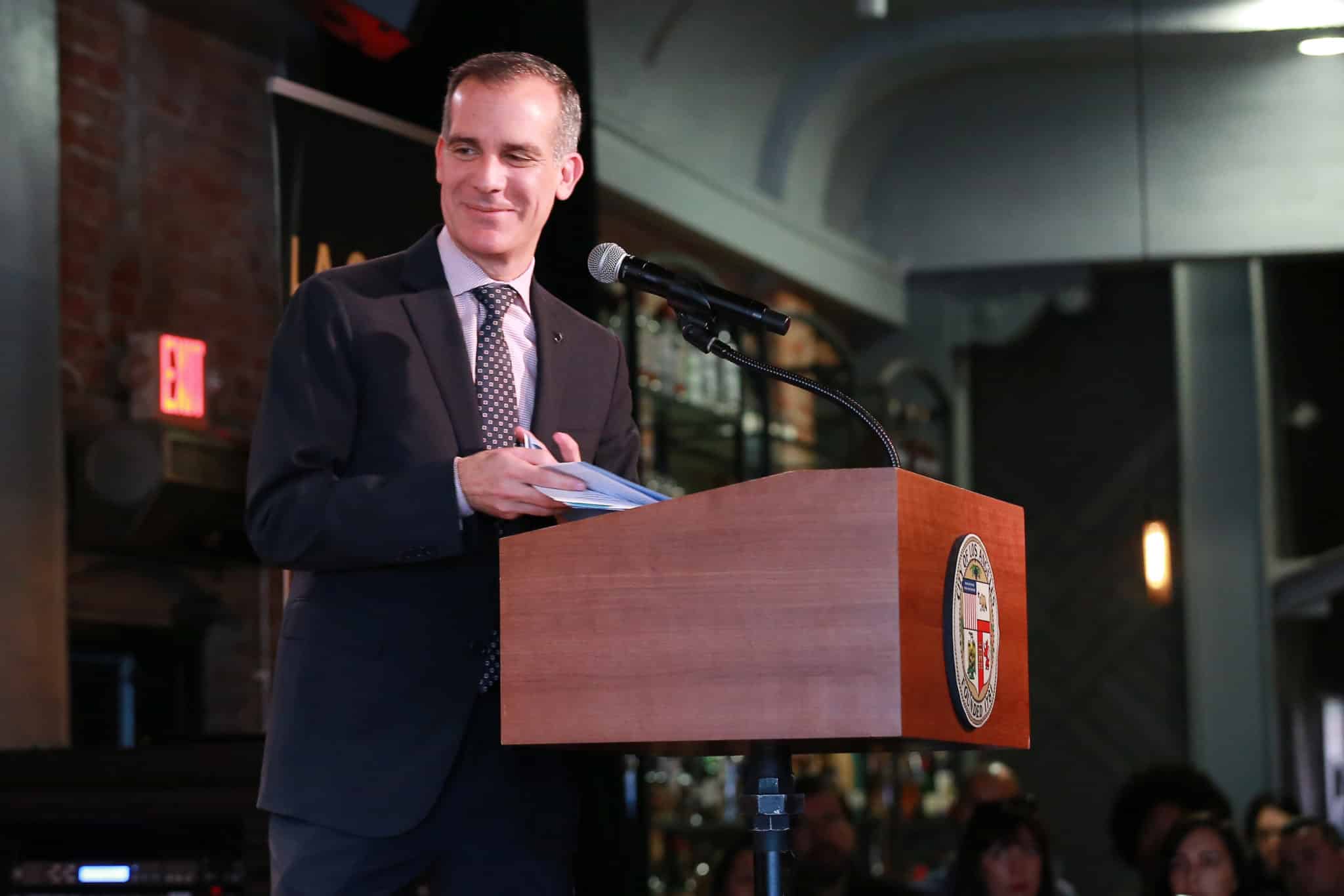
When Eric Garcetti was confirmed as U.S. Ambassador to India last week, it marked the end of an almost two-year long ordeal for Los Angeles’ former mayor. As recently as a few months ago, it appeared that Garcetti’s prospects for confirmation were dead and that allegations of sexual assault against a former aide would sink his nomination. Even worse for Garcetti was the widespread impression that the Biden Administration was not exerting a great deal of effort on his behalf. Several Democratic Senators with questions about Garcetti’s awareness of his advisor’s conduct seemed comfortable voicing their concerns publicly, without any noticeable pressure or pushback from the White House discouraging them.
But after Joe Biden resubmitted Garcetti’s nomination this January after Congress’ return, the president’s team decided that Garcetti was a priority for them after all. The stepped-up effort on his behalf was impossible to miss, and was most likely a result of two factors well beyond both Garcetti’s and Biden’s control.
The outcome of last November’s midterm elections changed the national landscape decidedly in Biden’s favor. Democrats slightly increased their Senate majority, giving the White House some additional flexibility on close votes. More importantly, even though Republicans regained the House majority, their showing was far below expectations, which considerably elevated Biden’s stature within his party. Prior to the midterms, speculation was rampant among party regulars as to whether Biden would even seek re-election in 2024. But once the results demonstrated the president’s renewed political strength, those questions were settled and the White House has been able to exert its will on congressional Democrats much more strongly. Garcetti was a direct beneficiary of Biden’s restored influence.
The absence of an ambassador in the capital of such a key ally was becoming an embarrassment to Biden and had created tangible obstacles to the relationship between the two countries.
There were also broader forces at work that worked to Garcetti’s benefit. India’s geopolitical importance has increased significantly in recent months, due to that country’s efforts to maintain neutrality between the U.S. and Russia throughout the Ukraine war and New Delhi’s collaboration with the Biden Administration in their joint efforts to confront China’s increasingly assertive behavior in the Pacific Rim. The absence of an ambassador in the capital of such a key ally was becoming an embarrassment to Biden and had created tangible obstacles to the relationship between the two countries. Pushing back against China has become a rare point of bipartisan agreement in Washington and it appears that the necessity of shoring up the U.S.-India partnership secured several key GOP votes for Garcetti.
As the importance of China rose, the issue that originally propelled the opposition to Garcetti continued to wane. Five years ago, public outrage against sexual misconduct on the part of an array of political, business and entertainment power-brokers fueled the #MeToo movement, which created a national impetus to crack down on inappropriate conduct that had been previously ignored or minimized. When Garcetti was first nominated, the residue of that outrage had diminished but still remained a palpable force. Not surprisingly, Senators of both parties chose to proceed with caution.
But as Donald Trump’s presidency has become more distant, and as the case against Harvey Weinstein has receded from public consciousness, the #MeToo movement no longer has the political impact that it once did. (Last year’s Supreme Court decision to overturn Roe vs. Wade may have also played a contributing role, by shifting the focus of those most invested in issues relating to the protection and support of women from sexual misconduct to abortion rights.) As a result, the conduct of Garcetti’s advisor and the potential awareness of Garcetti himself did not have the same level of impact that had been the case in the past. Biden might not have felt comfortable implementing a full public pressure campaign for Garcetti in 2021, but by last week his aides and closest Senate allies were twisting arms on Garcetti’s behalf with no hesitation.
Timing — in politics as in life — is everything. On the current political landscape, Biden has decided that the economic and security threat posed by China is of greater political import than the moral underpinnings of the #MeToo movement. And that is why Eric Garcetti is going to India.
Dan Schnur is a Professor at the University of California – Berkeley, USC and Pepperdine. Join Dan for his weekly webinar “Politics in the Time of Coronavirus” (www.lawac.org) on Tuesdays at 5 PM.






















 More news and opinions than at a Shabbat dinner, right in your inbox.
More news and opinions than at a Shabbat dinner, right in your inbox.